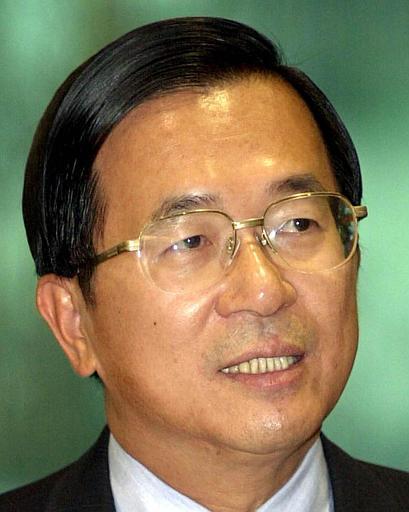Going Our Own Way

On 3 August 2002, in a
telecast to the annual conference of the World Federation of
Taiwanese Associations meeting in Tokyo, Taiwan President Chen
Shui-bian called for a referendum on Taiwan's future. President Chen
stated that holding a referendum was a basic human right of the
Taiwanese that cannot be deprived or restricted, and said: "Taiwan's
future and destiny can only be decided by the 23 million people
living on the island."
Mr. Chen told the conference
that it needs to be clear that "…with Taiwan and China on
each side of the Taiwan Strait, each side is a country." He
added: "Our Taiwan is not something that belongs to someone
else, Our Taiwan is not someone else's local government. Our Taiwan
is not someone else's province."
Mr. Chen's comments, which
were in native Taiwanese -- as opposed to the Mandarin dialect
brought over from China by Chiang Kai-shek's Nationalists -- were
warmly welcomed by the conference. The WFTA is the major umbrella
organization of overseas Taiwanese. Its members have been among the
strongest advocates of Taiwan independence.
Below, we present an
overview of recent reports, as well as more detailed arguments why
Taiwan should be allowed to take its rightful place among the family
of nations.
Overview of press reports
Why Taiwan should go "its own way"
The perception that Taiwan is somehow "part of China" is
false. It is the result of more than 50 years of indoctrination,
both by the Chinese Nationalists who came over to Taiwan with Chiang
Kai-shek and the Chinese Communists who took over China in 1949.
Neither of these positions allowed any room for the views of the
native Taiwanese, 85% of the population of the island.
The establishment of the United Nations in 1945 began a new era in
international relations, and prompted a long series of declarations
of independence in Asia and Africa. Because of a fluke accident of
history -- the occupation of Taiwan by Chiang Kai-shek's armies
fleeing from China -- the Taiwanese people were not able to join the
international family of nations as an independent nation right away.
Over the past five decades, the Taiwanese have, through their hard
work and ingenuity, achieved one of the most prosperous economies of
East Asia, and also brought about a full-fledged democracy.
Some international observers argue that we should not raise the
Taiwan issue, saying that Taiwan's entry into the UN is impossible
because China has a permanent seat in the Security Council and will
block any attempt to let Taiwan join the UN.
We believe that such a position is indefensible and totally
wrong: the world should not let itself be intimidated by
a repressive and dictatorial China. It should stand up for the
principles on which the UN was founded: freedom, democracy, equal
rights and self-determination of peoples.
In particular Western nations, which seem so eager to
trade with China, have the moral obligation to make it clear to
China that its acceptance as a full partner in the international
community hinges on its recognition of Taiwan as a friendly
neighbor.
For China, the new Taiwan is thus not the old rival from
the days of the Chinese Civil War on the mainland (a myth
perpetuated by the former Kuomintang authorities for many decades),
but a new neighbor, which wants to live in peace with all its
neighbors, including the big brother across the Straits.
Our Appeal
We thus appeal to the rest of the world, and particularly the
United States and Europe, to live up to the principles of
universality and democracy on which the United Nations were founded,
accept Taiwan as a full and equal partner, and recognize it under
the heading of a new "One Taiwan, One China" policy.
A new "One Taiwan, One China" policy would not alter
international recognition of the government in Beijing as the rulers
of mainland China, but it should specifically refer to the
provisions of the San Francisco Peace Treaty of 1952, in which the
members of the United Nations decided that "...the future
status of Taiwan will be decided in accord with the purposes and
principles of the Charter of the United Nations".
As part of this new policy, the international community needs
to express clearly that:
- in accordance with Art. 1.2 of the UN Charter -- it is
the inalienable right of the people of Taiwan to determine their
own future, free from outside coercion,
- the people of Taiwan have a right to membership of
their country in the United Nations under the name "Taiwan",
and
- it is in China's own interest to accept Taiwan as a
friendly neighbor, end hostilities towards the island, and move
towards peaceful coexistence, instead of perpetuating an old and
anachronistic Civil War. The Taiwanese themselves didn't have
anything to do with that Civil War and their future should not be
held hostage to it.
|

